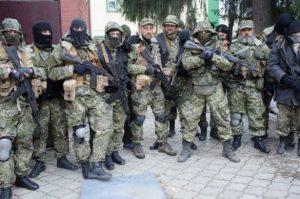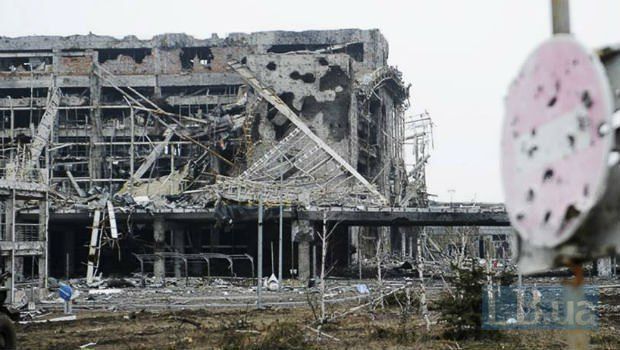Vladimir Putin not only doesn’t want to annex the Donbas but can’t do so, according to Yevgeny Ikhlov; and that means the region will become another edition of Transdniestria, creating ongoing problems for both Russian and Ukraine but opening the possibility Kyiv will be able to follow the Baltic path to the West, according to Dmitry Oreshkin.

Ikhlov points out today that Putin faces a very different situation in the Donbas than he did in Crimea. Crimea was annexed as a whole, but the Moscow-controlled forces of the “DNR” and “LNR” do not control all the Ukrainian oblasts of which they form a part, thus leaving the Kremlin with no good choices.
If Moscow simply annexed what the “DNR” and “LNR” now control, “for the first time, the Russian border would become undefined for hundreds of kilometers,” creating a bureaucratic, political and security nightmare for the Russian state, Ikhlov suggests.
He argues that Moscow would in fact have to do one of two things if it wanted to pursue Putin’s original policy of “reuniting the Russian world with Holy Rus.” Either it would “have to consider both oblasts entirely the subjects of the Old Russian Federation which would mean the official lodging of territorial demands against Ukraine.”
Or, he continues, it would have to “take a decision about the voluntary reducing the territory of these ‘peoples’ republics’ in half and about giving February 12, 2015 ceasefire line the status of a state border, which would mean not only Russia’s withdrawal from the Minsk accords but also the complete destruction of the mythology about ‘supporters of federalization’” in Ukraine.
Doing either would undercut Russian policy in Ukraine, exacerbate relations between Moscow and the West which would beyond any doubt impose even more serious sanctions, and create problems at home not only among Russian nationalists who would feel betrayed but also among those who have been fighting in the Donbas and would not return home.
Meanwhile, Oreshkin points out that because Putin cannot either force Kyiv to take the territories of the “DNR” and the “LNR” back into Ukraine in a way allowing Moscow to have an effective veto over Kyiv or annex them, his only alternative is “a second Transdniestria.”
“Russia does not have real political, diplomatic or economic resources to annex these territories,” the Russian analyst continues. “The naïve peasants in the Donbas supposed that first in Russia everything is good and it will be glad to take them in and second that Vladimir Putin is a real guy and will not surrender them.”
“But it has turned out,” Oreshkin says, that “in Russia everything is bad and there is no money, and that Vladimir Putin is indifferent to the fate of the Donbas peasants: he needs an instrument to influence Kyiv, and the ideal instrument [or at least the best available to him] is a constantly smoldering conflict like those in the style of the Karabakh or Transdniestria.”
Putin in no case “will take the Donbas into the Russian Federation.” He can’t afford it at home or in terms of his policies toward Ukraine. Thus, the Kremlin leader will continue to try to force Kyiv to take responsibility for them and to get Western governments to support him in that in the name of territorial integrity.
That is because, Oreshkin argues, “the worst nightmare of Russia is a Ukraine” will be able to form a normal economy and a democratic state as the three Baltic countries and thus become part of the West.
Of course, he says, “it is possible to continue to tell lies about the Baltic countries being a fascist nest; but the people living there, including the [ethnic] Russians understand very well that they live better than their counterparts in Moscow. The average monthly pay in the Baltic countries is approximately 1,000 euros.” In Russia, it is just over a third of that.
And that situation exists, Oreshkin continues, despite the fact that “in Russia, there is gas, oil, gold, timber, diamonds and other things, and in the Baltic countries, there are not any of these things.”
“If something similar occurs in Ukraine, that would be a catastrophe for the Kremlin because while one can still tell lies about the Baltics and their oppression of [ethnic] Russians, it is far more difficult to lie about Ukraine – there are too many links and it is too close a country.” And that is yet another reason Moscow is trapped and cannot annex the Donbas.






